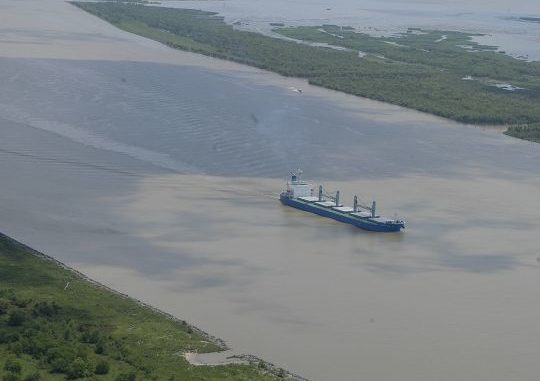
More action needed in coastal restoration
The headline stopped me cold: “New report finds that most sediment that replenishes marshland comes from the Mississippi River.”
I couldn’t believe it. A new study was actually done by LSU’s Coastal Studies Institute and — keep up, now — found that the Mississippi River actually carries most of the sediment that helps hold the marshes together in the area surrounding — come on, don’t lose track — the mouth of a waterway known as the “Big Muddy.”
Man, I was floored. I didn’t even know that was in doubt.
I’m no scientist, but wouldn’t the importance of the Mississippi River in terms of sediment be obvious? I mean, all you have to do is look at a map of the state to see that the greatest area of coastal marshes is contained between the Atchafalaya and Mississippi rivers. You don’t see such expanses of marshland in Alabama, Mississippi, Texas or pretty much any other coastline in the country.
Maybe I’m jumping to conclusions, but I’m betting the lack of extensive marsh buildup in those areas has something to do with the fact that a watery artery isn’t carrying massive loads of sediment from all over the country to those locations.
And when did Southeast Louisiana’s marshes begin disappear into the sea? Oh, that’s right: When levees began sending most of the river’s sediment off the edge of the continental shelf.
The news article about the report didn’t provide the cost of the study, but it strikes me as a prime example of the waste of resources that has too often stymied real coastal restoration work.
We need more action, not more studies. Every dollar wasted on studies such as this is a dollar that can’t be used to staunch the coastal bleeding.
And that any money was spent to determine something so obvious should be an affront to every agency, ever scientist, every legislator and every outdoorsman watching helplessly as the Gulf relentlessly eats away at our marshes.
That’s not to say I believe science and studies are unnecessary — but research dollars should be spent only to learn something new, not confirm what is already known.
“The catastrophe facing (S)outh Louisiana means that we must act quickly, or we will lose everything,” according to the introduction to Louisiana’s Comprehensive Master Plan for a Sustainable Coast.
I couldn’t agree more. These kinds of meaningless studies have slowed real progress for far too long.
It’s time to stop studying the issue to death and put every dime available into real, on-the-ground action.
Funding is simply too hard to come by.


